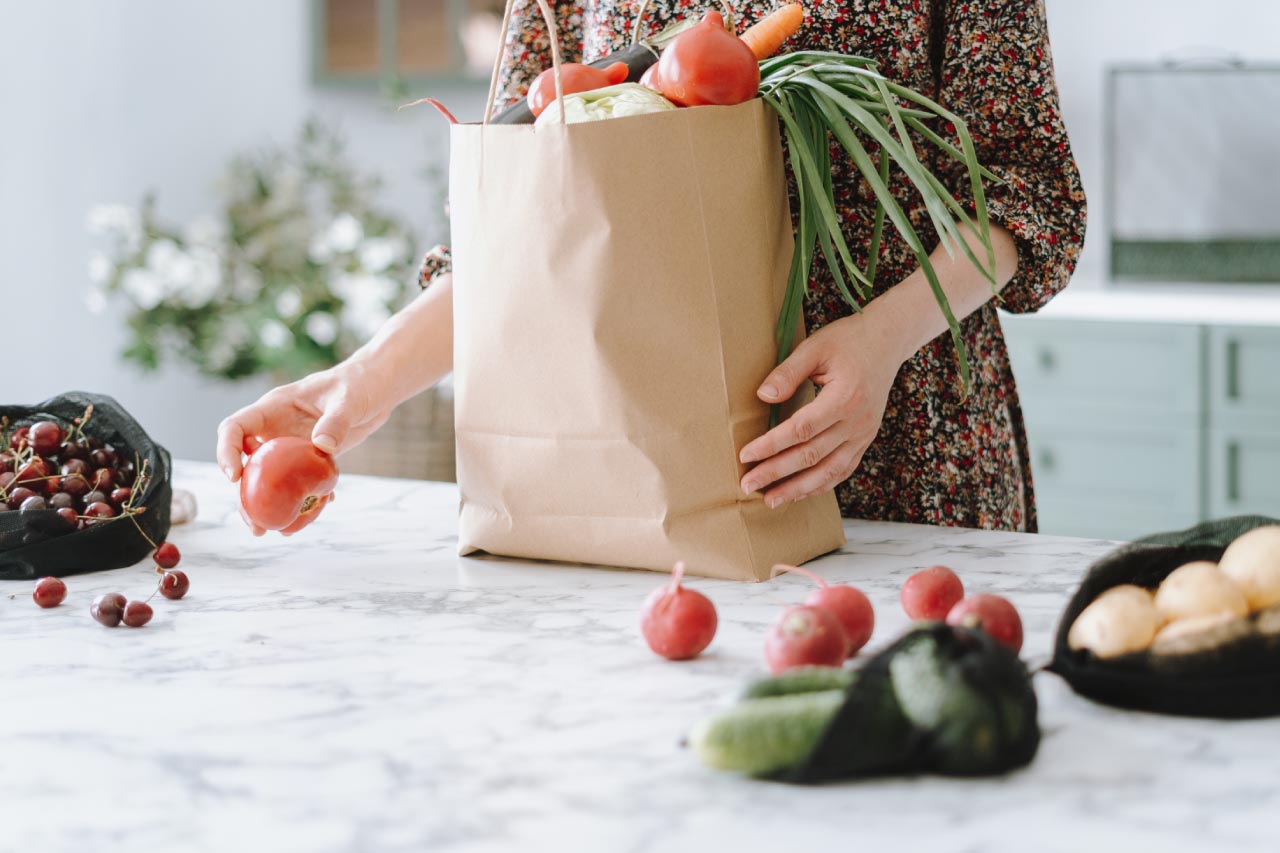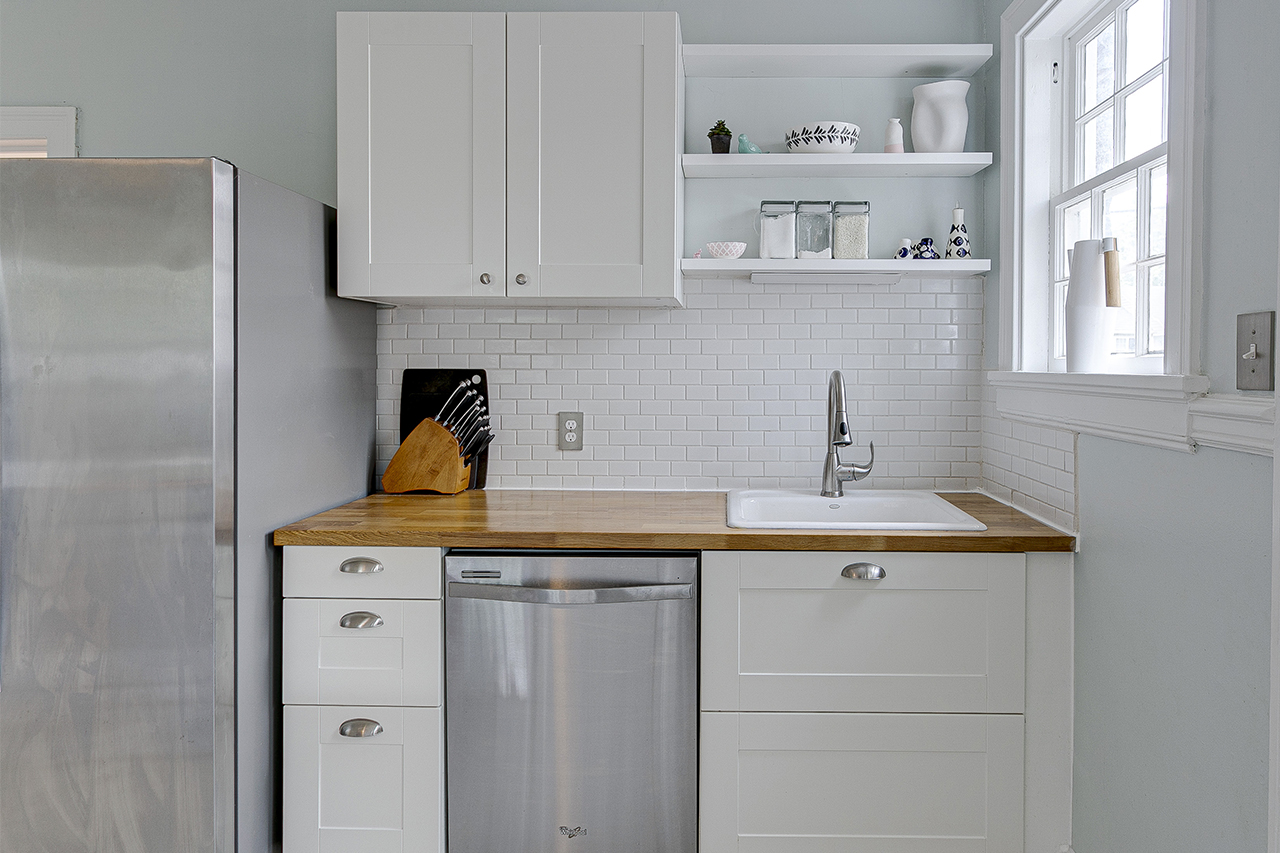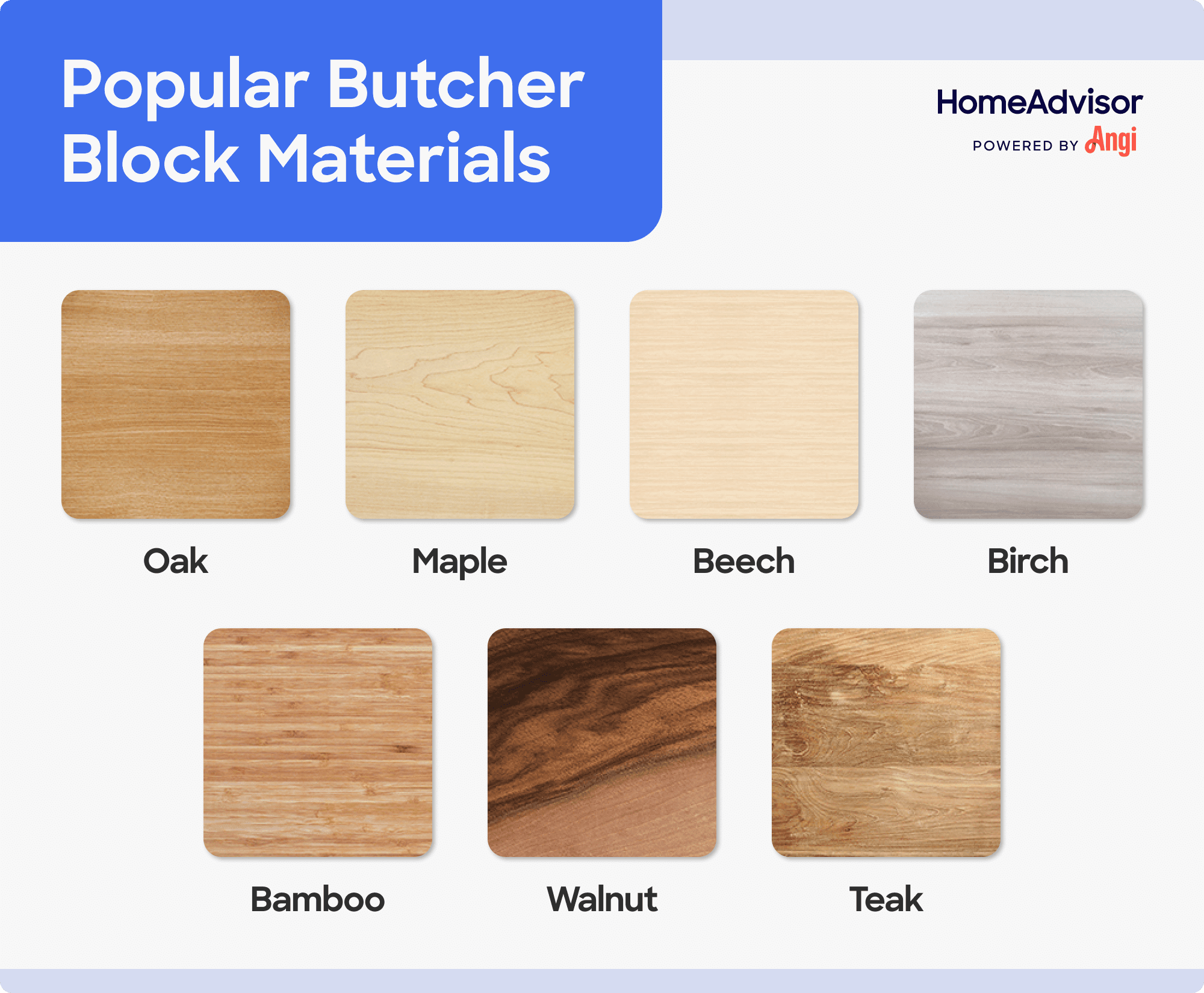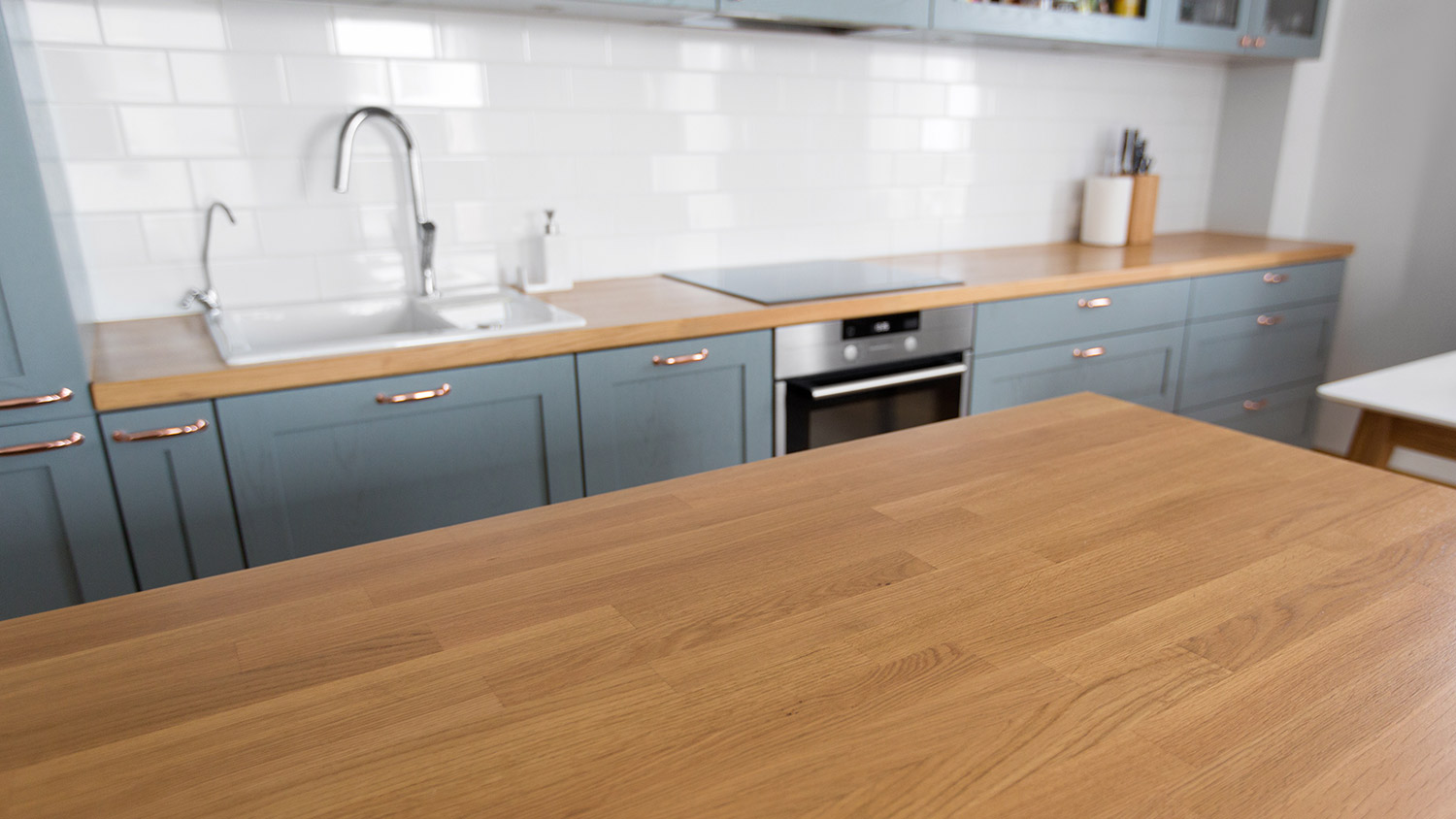
Discover how much porcelain countertops cost to install based on factors such as their size, materials, add-ons, and local labor rates.
You’ll pay anywhere from $500 to $15,000 for a butcher block countertop, but the average price is $3,750. A pro can give you an accurate estimate based on how big your countertop is.


This article was updated using automation technology and thoroughly reviewed for accuracy by HomeAdvisor Editor Ryan Noonan.
A butcher block countertop costs between $1,200 and $5,000, or $50 to $150 per square foot, depending on the size, type of wood, and quality of installation. You could spend as much as $15,000 on a custom design made from unique, region-specific wood. The average price is $3,750.
Factors influencing the cost include the size of your countertop, the type and quality of wood used, and the complexity of the installation. It's important to budget carefully for your project and consider hiring a professional to ensure the best results.

A butcher block costs $3,750 on average. You can expect to pay between $50 and $150 per square foot, though this can change depending on the type of wood and the wood grain. For custom or high-end options, prices can reach up to $300 per square foot.
Labor, materials, equipment, and backsplashes are the main cost factors to consider when calculating the cost to install butcher block countertops.
Labor costs make up a significant portion of your total butcher block countertop price. You can expect to pay between $60 and $100 per hour or $10 to $100 per square foot for installation. Custom work often runs around $150 per square foot, so large kitchens could exceed $10,000 in labor costs alone. Labor accounts for 30% to 50% of your total project cost.
If you're installing raw wood, be prepared to pay more for labor since it requires cutouts, edging, and finishing. However, you'll save money on materials with this option.
Job materials and supplies cost $100 to $250. It includes fasteners, caulking, sealants, glue, and cleaning supplies. You'll double that for acrylic tops or lacquered finishes.
In addition to an equipment allowance of $30 to $100, a basic butcher block countertop project DIY can cost between $100 and $500 overall, considering material and tool expenses. Keep in mind that while professionals may finish a job in a day, a DIY project could take a weekend or more. Most contractors include this price in the project price. It covers specialty tools such as pneumatic nailers, miter saws, belt sanders, and electric planers.
You’ll buy butcher block backsplashes separately for $100 to $500. Your installer wraps the installation costs into your overall bill. Backsplashes are most often sold separately.
The cost of the backsplash depends on the type of wood as well as the length. For example, a 4-inch wide maple backsplash piece 2 feet long costs about $25. For higher-end woods such as cherry, it can be between $50 to $60 for the same size, not including the labor to install it.
| Type | Cost |
|---|---|
| Maple | $40 – $80 |
| Cherry | $50 – $275 |
| Red oak | $15 – $50 |
| Bamboo | $50 – $125 |
| Birch | $25 – $75 |
| Beech | $40 – $100 |
| Walnut | $75 – $300 |
| Teak | $100 – $200 |
Maple is a popular choice for butcher block countertops in North America, and it’s known for its durability and light, clean appearance. Prices range from $40 to $225 per square foot, but most homeowners pay between $40 and $60 per square foot. Custom features like specialty edges, finishes, or installations can increase the cost up to $225 per square foot.
American cherry wood butcher block countertops cost $50 to $275 per square foot, though you’ll likely never pay more than $100 per square foot for most installations. Custom work and finishes push the price up to $275 per square foot.
Red oak costs only $15 to $50 per square foot. It’s extremely popular and cost-efficient, plus it’s easy to find in most wood supply stores. You’ll often find this as an “off-the-shelf” type.
Bamboo butcher block countertops cost $50 to $125 per square foot after installation. While not actually a wood, they’re economical, environmentally friendly, and have some natural antibacterial properties.
Birch, another popular American wood, costs $25 to $75 per square foot with installation. Plain wood with no cutouts or finish might cost slightly less, but you’ll pay more for the finished work.
Beech wood butcher block counters cost $40 to $65 per square foot. Imported varieties or those with custom edges might run upward of $100 per square foot.
Walnut, an extremely popular dark wood countertop, costs $75 to $350 per square foot. High-end finishes with custom work are popular for high-end kitchen designs, pushing the price up to the top of the range. However, you can sometimes find unfinished walnut ready to go off-the-shelf.
Teak, an imported hardwood, costs $100 to $200 per square foot. Zebrawood countertops can cost upwards of $300 per square foot. It’s an extremely hard wood, making it difficult to work with, but because of its incredible durability and unique look, it’s highly prized.
| Grain Type | Cost Range per Square Foot |
|---|---|
| End grain | $75 – $350 |
| Edge grain | $50 – $275 |
| Face grain | $30 – $200 |
| Blended | $50 – $325 |
End grain countertops cost $75 to $350 per square foot. A small inset of 2-by-2 feet might cost $300. End grain is when the wood is glued together along the grain in squares. This type looks like a checkerboard. It’s sought after as a cutting board, but the design does well on counters too. It’s not as durable as edge or face grain.
Edge grain countertops cost $40 to $275 per square foot. A small inset of 2-by-2 feet might cost $175. Edge grain is the edge of the board. It has less beauty than face grain, but it’s often the most durable part of the wood. It’ll look like thin strips glued together for a countertop.
Face grain countertops cost $30 to $200 per square foot. A small inset of 2-by-2 feet might cost $125. The face is the face of the board. It’s the cheapest way to make a cutting board. It often has wider panels, or the “face” of the board, as the counter.
Blended butcher block counters cost $50 to $325 per square foot. They’re a mix of the other three varieties.
Installing a butcher block island top costs the same as any other butcher block installation, starting at around $40 per square foot (noting that installation costs may still scale up to around $150 per square foot in specific scenarios). However, if you’re installing a new island, you’ll need to also consider other installation cost factors for sinks, outlets, and lighting.
Installing electrical wiring costs: $500–$2,000
Sink installation costs: $200–$600
Plumbing costs: $200–$500
These costs may not apply to every project, but factor these in if they apply to your renovation.
Removing your old countertop costs $50 to $300 for the removal service. You may pay more for dumping fees in some areas. Talk with your contractor to find out how much it’ll cost in your location.
Installing a sink costs $200 to $600 per sink. You may pay double that to add plumbing in if you don’t already have it installed.
Waterproofing butcher block countertops costs $5 to $35 per application and makes an excellent DIY project. You’ll only need to do this about once or twice a year, and only if you don’t have your countertop completely sealed with an epoxy or similar sealant.
Maintenance costs anywhere from $5 to $50 per year. If you need repairs done, you might spend up to $250 for a professional visit. Depending on your finish, you may need light sanding, lacquer, staining, waterproofing, and cleaning.
If you have the time, tools, and some DIY experience, installing a butcher block countertop can be a rewarding project. Keep in mind that while a professional team can complete the installation in a day, it may take you longer. You'll also need assistance due to the size and weight of the countertop.
Potential drawbacks to consider:
Improper cuts and fits: Mistakes can be costly, requiring you to purchase a new countertop.
Risk of injury: Handling heavy materials and power tools carries risks.
Time commitment: Installation can take at least two full days for a DIYer.
Complex details: Cutting, routing, staining or oiling, and creating sink cutouts require precision.
In many cases, hiring a professional countertop installer near you ensures the job is done right and helps you avoid costly errors. Reach out to a local pro to get your project started.
No place is more important than your home, which is why HomeAdvisor connects homeowners with local pros to transform their houses into homes they love. To help homeowners prepare for their next project, HomeAdvisor provides readers with accurate cost data and follows strict editorial guidelines. After a project is complete, we survey real customers about the costs to develop the pricing data you see, so you can make the best decisions for you and your home. We pair this data with research from reputable sources, including the U.S. Bureau of Labor Statistics, academic journals, market studies, and interviews with industry experts—all to ensure our prices reflect real-world projects.
From average costs to expert advice, get all the answers you need to get your job done.

Discover how much porcelain countertops cost to install based on factors such as their size, materials, add-ons, and local labor rates.

Use this guide to budget for kitchen island costs, including island style and shape, customizations, countertop options, professional labor, and more.

Check out this guide to discover how much soapstone countertops cost to install based on their size, location, edging, and labor fees.

Budget for quartz countertop costs based on factors such as material quality, edge treatment, labor, leveling, existing countertop removal, and more.

Who can install butcher block countertops? Learn whether a countertop contractor, finish carpenter, or GC is right for your project, plus steps and costs.